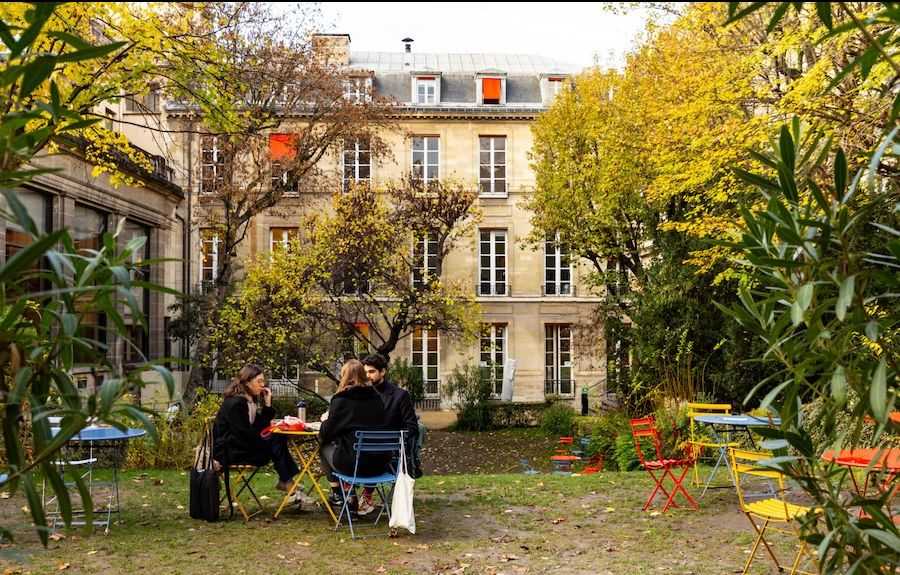Home>What is the SAFEDUC Research Project About and Why Do We Need It

26.03.2024
What is the SAFEDUC Research Project About and Why Do We Need It
Sciences Po and Université Paris Cité have come together to conduct a shared Initiative of Excellence (IdEx) research study among their student population on the prevalence of sexual and gender-based violence. Titled SAFEDUC, the research is taking place under Sciences Po’s Gender Studies Programme, and aims to collect prevalence data in order to map the living experiences of university students. It will be conducted via an anonymous online survey accessible to all students at both institutions from 25 March to 19 May, 2024. In this interview, you will get to know its two principal investigators: Hélène Périvier and Virginie Bonnot.
Please, introduce yourselves. What is your position and connection to the project and the topic of gender-based violence?

Hélène Périvier: I am a researcher in Economics at the French Economic Observatory, and I am the director and the co-founder of the Gender Studies Programme at Sciences Po. My research focuses on the evaluation of family, social and tax policies, and also on the analysis of gender inequalities in the labour market, in the family and in higher education. The topic of gender-based violence is a new perspective in my research but is connected, as the SAFEDUC project is key to analysing gender inequalities in higher education.

Virginie Bonnot: I am a professor of Social Psychology at the Laboratoire de Psychologie Sociale of Université Paris Cité, and the Director of Cité du Genre (FR), an interdisciplinary institute for research and education in gender studies. As the head of Cité du Genre I am co-principal investigator of SAFEDUC with Hélène. My research work does not directly focus on gender-based violence but on gender system-justifying ideologies, such as gender stereotypes and sexism, which are root causes of discrimination and violence. I also teach a class partly centred on sexual objectification and violence-legitimising myths.
How would you describe SAFEDUC and its purpose?
Hélène Périvier: SAFEDUC aims at producing knowledge about gender-based violence (GBV) experienced by students. This project will provide a measure of these violences that will help to analyse the context in which they emerge: what type of violence, when and where do they arise, who is involved, and the vulnerabilities associated with them. For instance, do we observe a decrease of GBV when the proportion of female students increases? Is it different in a big university such as UPCité or a smaller one such as Sciences Po? The ultimate goal is to create an incentive for other higher education institutions in France to run the same type of survey, relying on our experience. In curricula where female students are underrepresented, the number of victims is mechanically lower, as most of the time it is women who experience GBV. That is the reason why this phenomena is less visible in universities where female students are underrepresented compared to places where they are overrepresented. At the same time, we can expect that this violence might decrease or the nature of these violences might change as today women represent a larger proportion of students. Our survey will bring new data to answer these questions.
How did the idea of the project emerge?
Hélène Périvier: In 2020, I participated in a working group chaired by sociologist Danièle Hervieu-Leger dedicated to an analysis of GBV at Sciences Po. I was struck by the lack of solid knowledge we could rely on. The first step to design efficient policies to tackle these types of violences is to have a precise picture of what students experiment during their studies. As a researcher, I then recommended to the group to encourage new research on this topic. In the aftermath of this report, and with the support of my colleagues from Sciences Po’s Gender Studies Programme, I wrote a research proposal to run a survey in several higher education institutions. Then, funding came from the Initiative of Excellence (IdEx) with Université Paris Cité as a partner, which is a very good starting point.
Virginie Bonnot: Just to add, the topic is very important and similar studies at other universities have found significant rates of gender-based and sexual violence, enough for us to be preoccupied, both as researchers and teachers, but also as citizens. As a member of the Director Council of Cité du Genre, Hélène brought up the idea of the project and of associating our institutions to enrich the research by also adding a comparative dimension.
The project is not only inter-institutional but also interdisciplinary. What are your thoughts on this kind of collaboration? Do you see any professional differences in approaches to the topic?
Hélène Périvier: As with many topics, we need multiple skills and approaches to produce relevant knowledge. More specifically, this project requires statistical competences to guarantee the representativeness of the survey and the analysis of the results. It also relies on a sociological framework to phrase the questions and to make sure that respondents understand precisely what each type of violence means. We also had to design a protocol regarding the data protection and anonymity. Finally, the way we disseminate the survey is key to maximise the response rate. The SAFEDUC team gathers all these competences with researchers interacting at each step of the project.
Virginie Bonnot: Yes, the project involves a large variety of disciplines, both at the head of the project and at the level of its Scientific Board. It is really enriching to be able to work in an interdisciplinary team, with diverse methodological backgrounds. But I would say our approaches were also very similar in the context of this particular project. Complementarity, more than differences, would potentially emerge more evidently if we were to study and measure, let’s say, correlations of this violence from the perspective of our respective disciplines.
What is the long term goal of the research project? What are your future plans?
Virginie Bonnot: I would say it is only the first step towards a better acknowledgment and understanding of the problem, and towards a growing role of the institution into combatting it. So we do not just stop there! We do hope that our institutions will grant sufficient means to Equality, Diversity and Inclusion offices which will be most probably more and more solicited. It would be a good idea to repeat the survey on a regular basis and be able to monitor the progress made on that matter. Moreover, we had the constraint of producing a questionnaire that wasn't too long. As a result, many questions we could have asked were left aside, such as knowledge of reporting systems at the Uni level for example. As I said in answering the previous question, in the future, we could study more deeply the psychological consequences of gender-based and sexual violence, for example the sense of belonging to the University, depressive symptoms and so on, or the prevalence of beliefs that legitimise such violence. It would also be important to study the prevalence of gender-based violence amongst researchers and administrative and research staff.
Hélène Périvier: Exactly. And the very first contribution, from my perspective, is to support Sciences Po and Université Paris Cité to design appropriate and tailored policies to tackle GBV that can take into account the specificity of each context in which these violences emerge. The second contribution is to raise awareness in the sector of higher education so that all institutions run a similar survey – engineering and business schools, universities etc. This is the only way to measure and tackle this violence at the national level. Based on our experience, and the one of Nantes Université, it will be easier for them to implement such a research. The third contribution will be, as Virginie said, to run this survey regularly to evaluate improvement and efficacy of institutional policies. We hope this survey will shed light on violence affecting the student population, and finally society as a whole.
This interview was conducted by Eva Oliva.
More
- Learn more about the SAFEDUC project and, if you are a student from Sciences Po or Université Paris Cité, take the survey.
- Read other interviews on SAFEDUC:
- with project researchers Clara Le Gallic-Ach and Victor Coutolleau explaining the challenges they faced and why all students should fill in the questionnaire
- with sociologist Marta Domínguez Folgueras, an Associate Professor of Sociology working at Centre for Research on Social Inequalities at Sciences Po (CRIS) on the connections between violence, power and social hierarchies
- with Université Paris Cité Public Health Professor and Vice-President for Equality, Diversity and Inclusion Joëlle Kivits, on violence prevention
- with Eva Oliva, a staff member of the Institute of Sociology of the Czech Academy of Sciences, about her experience as an Erasmus+ intern within the research project
- Hélène Périvier is a researcher in economics in the French Economist Observatory and the director of Sciences Po’s Gender Studies Programme
- Virginie Bonnot is a professor of Social Psychology at Université Paris Cité and the Director of for Cité du Genre
Cover image caption: The garden at 27 rue Saint-Guillaume, on the Paris campus. (credits: Caroline Maufroid / Sciences Po)